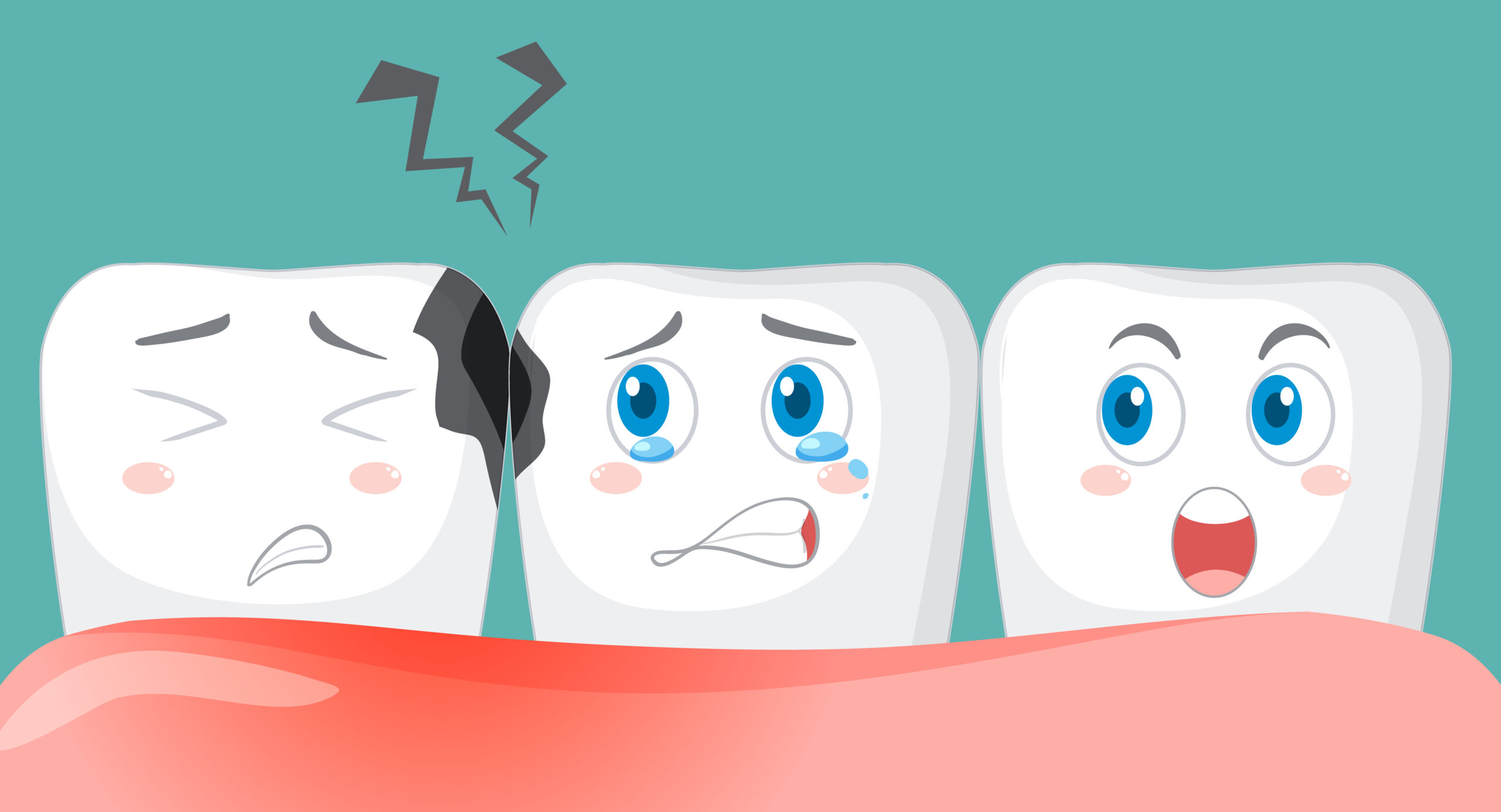Here we are going to share information on the topic “Can I treat gum disease at home” Inflammation and infection of the gums and the bone supporting your teeth are symptoms of periodontal disease. Poor hygiene may be the cause, but certain individuals are more vulnerable to this kind of infection. Gums that are bleeding and swollen, loose teeth, and foul breath are possible symptoms. Various therapies are available based on the severity of the illness. An infection of the tissues that hold your teeth in place is known as periodontal disease, or gum disease. It’s usually brought on by bad brushing and flossing practices that let plaque—a sticky layer of bacteria—accumulate and solidify on the teeth. The first signs are red, swollen, and bleeding gums. It can spread to the bones around the gums if treatment is not received, which would make chewing uncomfortable. In the worst situations, teeth might fall loose or require extraction.

Periodontal disease: what is it?
Gum disease, commonly known as periodontal disease, is the term for infection and inflammation of the tissues that surround your teeth. Gum disease can be brought on by poor oral hygiene. Nevertheless, even with appropriate brushing and flossing, some people are more susceptible to this problem than others.
How prevalent is gum disease?
In the US, about half of adults suffer from gum disease. It is the main factor in tooth loss. Signs and Origins. What signs of periodontal disease are present?
Reddish or purplish gums are among the signs and symptoms of periodontal disease.
- Bleeding.
- Soreness.
- foul breath (halitosis).
- The taste is not pleasant.
- discomfort during chewing.
- A disastrous recession (gums that pull away from your teeth).
- loose teeth.
- A modification to the fit of your teeth.
Stages of periodontal disease
Gums in good health feel firm to the touch. They neither bulge nor bleed. However, bleeding, swelling, and stained (reddish or purplish) gums might be a symptom of periodontal disease. Gum disease can destroy your jawbone if left untreated, which could result in the loss of your teeth.
The tissues surrounding your teeth eventually deteriorate. In actuality, most patients with gum disease—especially in its early stages—don’t feel any pain. Thus, it’s critical to recognize the warning indicators.
Gum disease progresses in four stages:
1. Gingivitis.
The initial phase of gum disease is this. When you brush or floss, it may bleed from red, swollen gums at first. There isn’t any bone loss at this point. Gingivitis is, therefore, completely curable with the right care.
2. Periodontitis milde.
Your gums have allowed the bacteria to penetrate and damage the underlying bone. It’s possible for your gums to separate from your teeth and form pockets around them. In these pockets, where your toothbrush and floss can’t reach, plaque and germs like to hide.
3. Moderate gingivitis.
The ligaments, soft tissues, and bone that support your teeth in place start to deteriorate if you don’t treat bacteria. Bad breath and pus (an infection) near your gum line are possible symptoms. At this point, some people start to feel pain.
4. Advanced periodontitis
Bone loss persists as periodontal disease gets worse. Your teeth may get loose as a result and finally fall out.
Gum disease is reversible if caught early enough. However, the illness is too advanced to be reversed if you have already lost bone around your teeth as a result of infection. On the other hand, with appropriate care and regular, conscientious oral hygiene, you can control it.
Can I treat gum disease at home
Periodontal disease: what is the cause?
- If dental plaque is not regularly removed, it can solidify and create tartar, which can accumulate and cause gum disease. Tartar can only be removed by a dentist or dental hygienist during a professional cleaning.
- Smoking is the most important risk factor for gum disease, while there are other ones as well. Additionally, smoking can reduce the effectiveness of gum disease treatments.
- Additional risk factors encompass hormonal fluctuations in females; certain medical conditions like diabetes or AIDS, along with their associated drugs; and heredity.
- The primary cause of periodontal disease is the accumulation of dental plaque. Numerous types of bacteria found in plaque have the ability to infect your gums. That’s why having bad dental hygiene increases your risk of developing gum disease. Because genes alter how the immune system reacts to bacteria, they can contribute to gum disease in some individuals.
What consequences might periodontal disease cause?
Gum disease deteriorates further without therapy, seriously harming your oral health. It causes an infection that spirals out of control and may result in tooth loss.
Additionally, studies have demonstrated the direct connection between gum disease and general health and wellbeing. Gum disease has been related to heart disease, stroke, and diabetes, among other health problems.
Handle periodontal disease at home
In order to lower your gum disease risk:
- Give your teeth two or three brushings each day.
- Floss your teeth every day.
- Use mouthwash that fights bacteria.
- Steer clear of tobacco usage, including smoking.
- Get regular cleanings and examinations at the dentist.
Can I treat gum disease at home
Prevention
Is periodontal disease preventable?
Ans: Yes, with regular and appropriate dental hygiene, gum disease can be avoided in most cases. Some people have a hereditary predisposition to gum disease, or they may have other health issues. You might require more frequent cleanings from your dental hygienist in these situations.
Frequently Asked Questions (Can I treat gum disease at home)
How does the prognosis for those who have periodontal disease look?
Periodontal disease does not pose a threat to life. However, it can result in other medical disorders that could need to be treated, particularly if the infection spreads to other body parts.
Gum disease has no known cure. However, it may be controlled with the right care. Early gum disease diagnosis and treatment might help you take better care of your oral health.
What questions should ask periodontist?
Here are some questions you might want to ask your periodontist if you have gum disease:
What is the stage of my gum disease?
Will I require nonsurgical or surgical care?
Do you provide choices for sedation dentistry?
How much time will it take to recover?
When can I resume my job or studies?
How frequently should I get my teeth cleaned?
Can I treat gum disease at home
Other Frequently Asked Questions
1. How can gum disease appear?
Ans: Gums that are swollen, sensitive, and reddish or purplish are early indicators of gum disease. There can be a plaque accumulation on your teeth. You can have pus around your gum line and loose teeth as the disease progresses.
2. How long after developing periodontal disease can you keep your teeth?
Ans: The severity of your ailment determines this. Due to the fact that each person is unique, there is no hard and fast rule. Generally speaking, your chances of losing teeth decrease with the early treatment of gum disease.
3. What consequences might periodontal disease cause?
Ans: Gum disease deteriorates further without therapy, seriously harming your oral health. It causes an infection that spirals out of control and may result in tooth loss.
4. Is there a spread of periodontal disease?
Ans: Gum disease-causing bacteria can spread from person to person. Although short-term, casual contact cannot transmit gum disease, prolonged, frequent salivary contact (such as kissing) can raise your chance of developing periodontal disease.
5. Is there a spread of periodontal disease?
Ans: Gum disease-causing bacteria can spread from person to person. Although short-term, casual contact cannot transmit gum disease, prolonged, frequent salivary contact (such as kissing) can raise your chance of developing periodontal disease.
Conclusion (Can I treat gum disease at home)
In conclusion, treating gum disease should be done carefully even if there are a number of DIY techniques and solutions that may help preserve good dental health and avoid gum disease. Instead than replacing professional dental treatments, at-home care should be used in conjunction with them. If gum disease is not addressed, it can worsen and result in major consequences like tooth loss and systemic health problems.
To effectively treat gum disease, it is imperative to priorities routine dental cleanings and check-ups and to heed the advice of dental professionals. To address advanced stages of gum disease, professional treatments including scaling and root planning and other interventions could be required.
Gum health can be enhanced by healthy eating habits, consistent dental hygiene, and abstaining from tobacco use, but at-home self-care may not be enough. People who have bleeding gums, chronic foul breath, or changes in the appearance of their gums should get professional dental advice right once.
In conclusion, practicing proper dental hygiene at home is essential to preventing gum disease, but it’s critical to understand the limitations of self-care. To maintain long-term oral health and general wellbeing, it is imperative that gum disease be effectively managed and treated by a dentist.

